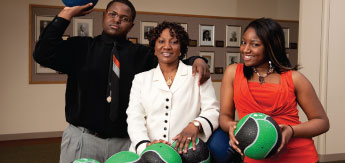On May 16-17, Boston Alliance for Racial Equity (BARE), in collaboration with Governing for Racial Equity Alliance (GARE), the Office of Mayor Martin J. Walsh and the City of Boston, held the city’s first racial justice conference, “The Summit on Race & Equity: A Call to Government & Community.” This Summit, which welcomed over 500 people from Boston and the region to Northeastern University, focused on local and national racial equity best practices and policies addressing structural racism and develop policies and alternative structures that challenge unfair systems.
This conference came in response to petition created in 2014 by community members, professionals and organizations dedicated to building a healthy community by increasing racial equity in the social determinants of health, called the Boston Racial Justice and Equity Initiative. This petition asked Mayor Walsh to commit to creating a commission focused on putting racial justice at the forefront of all decision-making, including budgeting, education systems, transportation services, and more. Thousands of individuals and organizations, including BACH, signed on to this effort.
BARE, a collaborative of community residents, organizations, and government leaders committed to transformation, healing, and the City of Boston has joined a national movement to ensure that policies and practices that impact the lives of residents are just and equitable.
This conference was a major step in moving towards this goal as Mayor Walsh and his cabinet were able to meet with leaders of the Government Alliance on Race and Equity (GARE), a national network of government cohorts working to achieve racial equity and advance opportunities for all, to establish a formal relationship. This includes becoming a member of GARE, committing to using the racial equity tools and meeting outcomes in the areas of housing, economic development and resilience.
This two-day event provided attendees with opportunities for learning, sharing and networking. There were ten, cross-sector workshops on topics such as housing, employment, education, transportation, public health, and immigrant groups, interactive sessions on community engagement and such racial equity tools, and segments that included music and culture to provide creative space for storytelling and expression.
The goals of the Boston Summit on Race and Equity were to:
- Increase understanding and commitment to racial equity across sectors: among government agencies, community and civic organizations, philanthropic organizations, and businesses.
- Share local and national racial equity effective practices.
- Further cross-jurisdictional, cross-community, and cross-sector strategies for racial equity with partners in housing, employment, education, transportation, public health, immigrant groups.
- Develop cooperative strategies for racial equity across jurisdictions, communities and sectors.
- Create a regional Boston Alliance on Race and Equity network in Greater Boston and New England.
These fully align with BACH strategic issue to achieve racial and ethnic healthy equity as outlined in the MAPP Report, specifically the action: public and private institutions will adopt, implement, and enforce comprehensive, system-wide policies and practices that achieve racial equity and justice. For this reason, BACH staff and interns were members of the planning committee and played an active role in organizing and implementation of this conference. Additionally, BACH supported 25 members to attend the Summit, including Healthy Community Champions and residents.
In June, BACH was able to hold a follow up meeting with attendees. While they reported that this was a good first step to get the City to focus on racial justice issues and overall positive feelings about the conference, attendees wanted to ensure there was a clear follow-up on major themes reported by participants, a system to keep residents included in the process an up-to-date on progress, and to reiterate the need for Mayor Walsh to be accountable for this commitment by clarifying goals for his office and the City of Boston. BARE leadership is continuing to work with the city to ensure follow through so that all residents have a healthy and equitable life in Boston.

